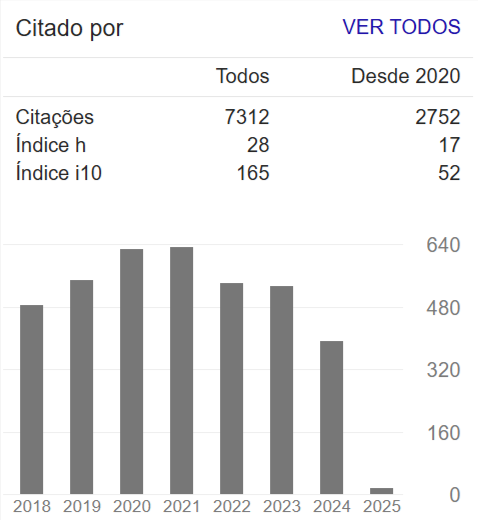Classification of groundwater for use in irrigation
Abstract
In regions under continuous water shortage, implementation of wells is a common practice. Although it is an effective means of obtaining water, this method does not guarantee water quality. In the state of Ceará, the basement of crystalline rocks predominates and, consequently waters contain high concentrations of ions that confer a high salinity to water. These waters are used for irrigation and, waters with high salinity, cause damage to plant species. For this reason, it is necessary to evaluate the water quality for this use. The study was conducted with groundwater from wells located in five sites in two different municipalities in the state of Ceará. Water samples were taken from January to March 2020 and the selected parameters analyzed were calcium, magnesium and sodium, for the calculation of the Sodium Adsorption Ratio, and Electric Conductivity to make the classification of waters, according to the risks of sodification (sodium) and salinization. The analyses followed the methodologies described in the Standard Methods for the Examination of Water and Wastewater (APHA, 2012) and were carried out at the Environmental Chemistry Laboratory of the Industrial Technology Foundation of Ceará (NUTEC). According to the results obtained for risks classes, it can be concluded that the groundwater was unsuitable for irrigation, unless special precautions are taken for use.

















